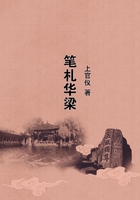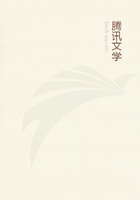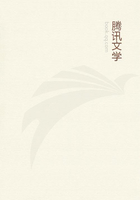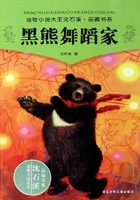His humanitarianism is a more popular, as it is an easier, ideal than humanity - it asks no expense of thought.There is a scanty public in England for tragedy or for comedy: the characters and situations handled by the sentimentalist might perchance furnish comedy with a theme; but he stilts them for a tragic performance, and they tumble into watery bathos, where a numerous public awaits them.
A similar degradation of the intellectual elements that are present in all good literature is practised by those whose single aim is to provoke laughter.In much of our so-called comic writing a superabundance of boisterous animal spirits, restrained from more practical expression by the ordinances of civil society, finds outlet and relief.The grimaces and caperings of buffoonery, the gymnastics of the punster and the parodist, the revels of pure nonsense may be, at their best, a refreshment and delight, but they are not comedy, and have proved in effect not a little hostile to the existence of comedy.The prevalence of jokers, moreover, spoils the game of humour; the sputter and sparkle of their made jokes interferes with that luminous contemplation of the incongruities of life and the universe which is humour's essence.
All that is ludicrous depends on some disproportion: Comedy judges the actual world by contrasting it with an ideal of sound sense, Humour reveals it in its true dimensions by turning on it the light of imagination and poetry.The perception of these incongruities, which are eternal, demands some expense of intellect; a cheaper amusement may be enjoyed by him who is content to take his stand on his own habits and prejudices and to laugh at all that does not square with them.This was the method of the age which, in the abysmal profound of waggery, engendered that portentous birth, the comic paper.Foreigners, it is said, do not laugh at the wit of these journals, and no wonder, for only a minute study of the customs and preoccupations of certain sections of English society could enable them to understand the point of view.From time to time one or another of the writers who are called upon for their weekly tale of jokes seems struggling upward to the free domain of Comedy; but in vain, his public holds him down, and compels him to laugh in chains.Some day, perchance, a literary historian, filled with the spirit of Cervantes or of Moliere, will give account of the Victorian era, and, not disdaining small things, will draw a picture of the society which inspired and controlled so resolute a jocularity.Then, at last, will the spirit of Comedy recognise that these were indeed what they claimed to be - comic papers.
"The style is the man;" but the social and rhetorical influences adulterate and debase it, until not one man in a thousand achieves his birthright, or claims his second self.The fire of the soul burns all too feebly, and warms itself by the reflected heat from the society around it.We give back words of tepid greeting, without improvement.We talk to our fellows in the phrases we learn from them, which come to mean less and less as they grow worn with use.Then we exaggerate and distort, heaping epithet upon epithet in the endeavour to get a little warmth out of the smouldering pile.The quiet cynicism of our everyday demeanour is open and shameless, we callously anticipate objections founded on the well-known vacuity of our seeming emotions, and assure our friends that we are "truly" grieved or "sincerely" rejoiced at their hap - as if joy or grief that really exists were some rare and precious brand of joy or grief.In its trivial conversational uses so simple and pure a thing as joy becomes a sandwich-man -humanity degraded to an advertisement.The poor dejected word shuffles along through the mud in the service of the sleek trader who employs it, and not until it meets with a poet is it rehabilitated and restored to dignity.
This is no indictment of society, which came into being before literature, and, in all the distraction of its multifarious concerns, can hardly keep a school for Style.It is rather a demonstration of the necessity, amid the wealthy disorder of modern civilisation, for poetic diction.One of the hardest of a poet's tasks is the search for his vocabulary.Perhaps in some idyllic pasture-land of Utopia there may have flourished a state where division of labour was unknown, where community of ideas, as well as of property, was absolute, and where the language of every day ran clear into poetry without the need of a refining process.They say that Caedmon was a cow-keeper: but the shepherds of Theocritus and Virgil are figments of a courtly brain, and Wordsworth himself, in his boldest flights of theory, was forced to allow of selection.
Even by selection from among the chaos of implements that are in daily use around him, a poet can barely equip himself with a choice of words sufficient for his needs; he must have recourse to his predecessors; and so it comes about that the poetry of the modern world is a store-house of obsolete diction.The most surprising characteristic of the right poetic diction, whether it draw its vocabulary from near at hand, or avail itself of the far-fetched inheritance preserved by the poets, is its matchless sincerity.


